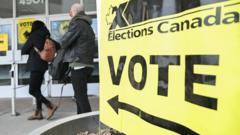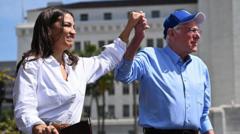As President Trump's administration freezes $2 billion in federal funding to Harvard University, a confrontation emerges over academic liberty versus political compliance.
Trump's Harvard Ultimatum: A Direct Assault on Academic Freedom

Trump's Harvard Ultimatum: A Direct Assault on Academic Freedom
Trump's Threat of Revenue Hijacking Looms Over Harvard's Independence
In a bold and controversial move, President Donald Trump has signaled a potential punitive measure against Harvard University, questioning its tax-exempt status just hours after announcing a freeze on over $2 billion in federal funds. This federal action aims to force changes in Harvard's hiring, admissions, and teaching practices, which the administration claims are necessary to combat purported antisemitism on campus. Upon his return to the presidency, Trump has adamantly sought to impose reforms across elite educational institutions, using federal funding as leverage.
Harvard, in a swift response to these demands, rejected the administration's interference, asserting its autonomy and condemning the White House for attempting to manipulate academic freedom. Following Harvard's refusal to comply, Trump took to social media, insinuating that the institution's activities warranted a review of its tax-exempt status and hinting at the possibility of taxing it as a political entity.
The implications of losing such an exemption could financially cripple Harvard, which currently boasts an endowment valued at over $53 billion. White House Press Secretary Karoline Leavitt emphasized Trump’s desire for Harvard to apologize for its perceived failure to tackle antisemitism, further igniting the tension between the government and the university.
Harvard’s refusal included a letter from President Alan Garber, outlining that the administration's demands represented an unacceptable encroachment on the university's fundamental rights. As the confrontation escalates, several elite institutions, including Columbia University, have faced similar dilemmas, with some acquiescing to government demands after funding cuts. Harvard's determination to uphold its academic principles places it at the forefront of a national debate over the balance between educational integrity and governmental control.
Adding to the turmoil, recent polling reveals a sharp decline in public confidence in higher education, particularly among Republicans, posing significant questions about the future relationship between academia and government. With actions reminiscent of past political maneuvers, Trump's stance on higher education not only challenges institutional autonomy but also calls into question the broader implications for freedom of speech within academic settings.























